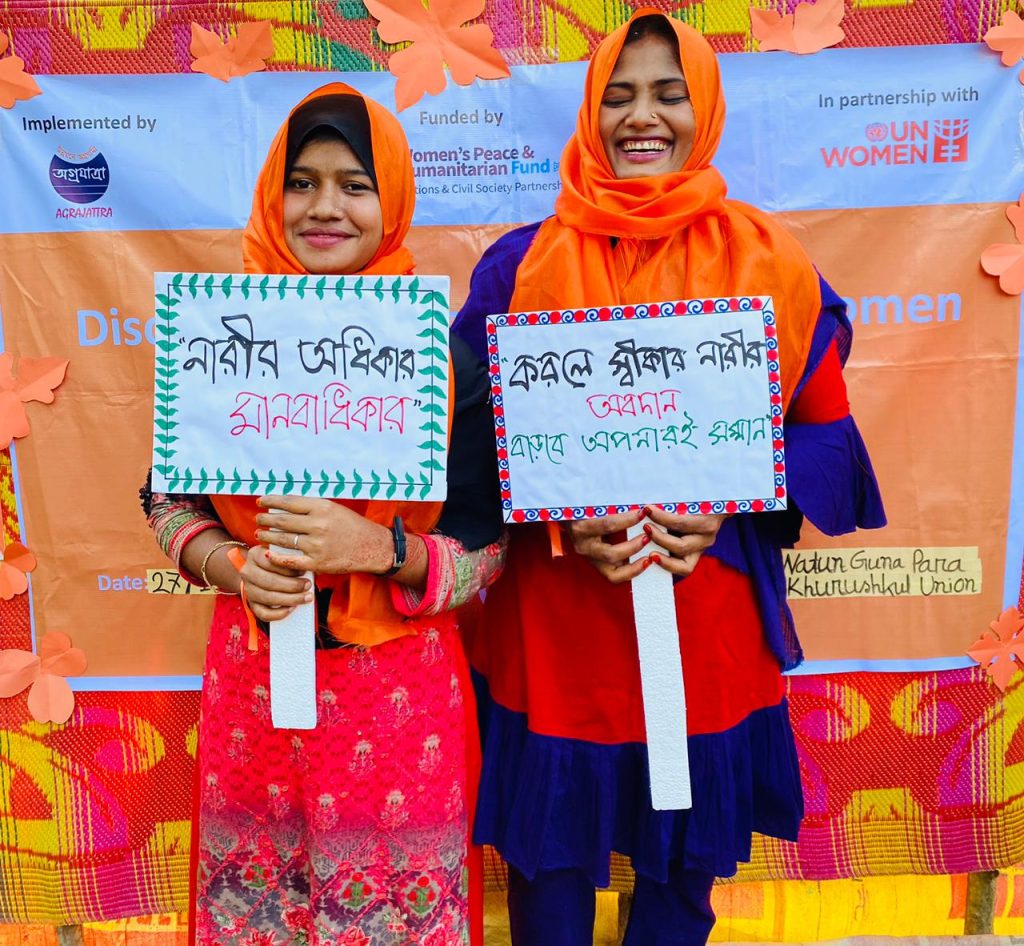The project titled “Improved Socio-Economic and Leadership of Vulnerable Displaced Affected Women/Young Women” was launched to address the critical need for women’s empowerment in Cox’s Bazar, a region profoundly impacted by displacement and socio-economic challenges. The project aimed to elevate the voices of vulnerable women and adolescents, inspired by Malala Yousafzai’s assertion that “We realize the importance of our voices only when we are silenced.”
In September 2017, Cox’s Bazar was declared a Level 3 Emergency due to the humanitarian crisis, the highest level in the global humanitarian system. The 2018 Humanitarian Response Plan estimated that at least 1.2 million people in the region would require assistance, with women and children being the most affected. These populations face increased risks of various forms of violence, particularly gender-based violence (GBV). Ensuring equity, sustainability, and the mitigation of socio-economic tensions and violence are essential for both the host communities and the displaced Rohingya refugees.
The primary objectives of the project were to enhance leadership skills among women, raise awareness of GBV, and provide life skills training. By focusing on these critical areas, the project aimed to significantly increase the empowerment and financial independence of its participants, enabling them to navigate their challenging circumstances with greater resilience and confidence.
Given the severity of the challenges faced by women in Cox’s Bazar, the project emphasized inclusivity, particularly targeting the most disadvantaged groups within the community, such as widows, divorced individuals, and women and girls with disabilities. These groups face compounded challenges that require targeted interventions to enhance their leadership skills, improve access to essential services, and promote community engagement. By equipping these women with the confidence and practical skills needed to lead, the project sought to improve their socio-economic conditions.
The project was implemented in Camps 1E, 8E, and 26, and in the host communities of Hnila, Palongkhali, Jhilongjha, Khurushkul, and Chowfoldondi Unions. It focused on women’s empowerment and strengthening livelihoods. Awareness sessions on GBV were crucial in promoting healthy family relationships, gender equity, and an equal division of family roles. These interventions had a positive impact on building a more equitable and supportive community.
AGRAJATTRA’s initiative to strengthen GBV awareness and empower survivors through leadership and soft skills training has been instrumental in fostering a more equitable and supportive environment for both the Rohingya and host populations. The project’s focus on inclusivity and targeted interventions has contributed significantly to the socio-economic upliftment and empowerment of vulnerable women and adolescents in Cox’s Bazar.
